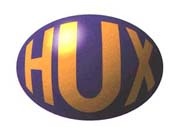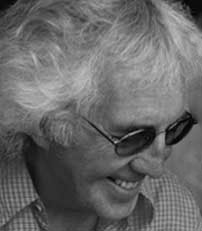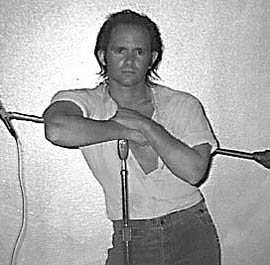 |
PETER IVERS was a member of psychedelic act Beacon Street Union. When they disbanded, Ivers recorded a solo album, Knight Of The Blue Communion (Epic, 1969), a religious concept. A blend of jazz, psychedelic, pop, classical and vaudeville vignettes with wildly eclectic arrangements and feverish rhythms, featuring an opera singer and electronic "modulations", it evokes Frank Zappa. Ivers relocated
to Los Angeles and recorded Terminal Love (Warner, 1974), a
collection of pop-jazz ballads. 1976's 'Peter Ivers' was more
singer-songwriter in style. |
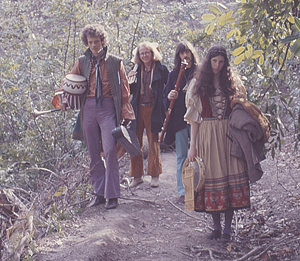 |
DR STRANGELY STRANGE was formed by a group of students who were on the fringes of Dublin's rock and folk club scene during the latter part of the 60s. They were influenced by the music of The Incredible String Band, with whom they were friends - and by 1968 their unique but slightly chaotic style had attracted the attention of several record companies. On Robin Williamson's recommendation, producer Joe Boyd travelled to Carlow to see the band open for Skid Row. A couple of months later the band travelled to London and recorded the first album "Kip Of The Serenes" under his direction. The band's label, Island, decided to include one of the band's songs 'Strangely Strange But Oddly Normal' on the12/11d (65p) sampler album "Nice Enough To Eat" which also included tracks by successful acts Free, Traffic and Blodwyn Pig. This gave the band much increased exposure and led to a hectic two-year touring schedule. In 1970 the group released their second album on Polygram's new progressive label Vertigo. "Heavy Petting" was met with favourable critical reviews and the band continued to gig in support of the new album. Tired of touring, Tim Goulding quit the group to get married and devote more time to his painting. He was replaced in early 1971 by Terry and Gaye Woods, newly departed from Steeleye Span. Dr Strangely Strange played its last gig on 16 May 1971 at the Theatre Royal, Drury Lane, sharing the bill with Al Stewart. Terry and Gaye went off to form their ill fated but interesting Woods Band while Tim Booth returned to Dublin to play solo gigs in folk clubs and resume his career as a commercial artist. Ivan Pawle moved to Kerry to live in a caravan, locating himself not far from Tim Goulding who was already living in an old schoolhouse in West Cork. By the beginning of 1972 the two Tims and Ivan were back together, with a couple of new musicians, for a short and successful tour of Ireland. Since then the trio have got together from time to time for various projects. "Kip Of The Serenes" and "Heavy Petting" have become soght after colelctables and there wwere even counterfeit copies of the Vertigo album such was the demand. The original
three members of the group decided to record a third album with the help
of Joe Thoma (fiddle), Bruno Staehelin (drums) and several friends
including Gary Moore (guitar). The reformed Dr Strangely Strange
completed 'Alternative Medicine' whcih further showcased and updated the
band's Irish country rock. |
|
|
WIZZ JONES was been
inspired to take up the acoustic guitar in the late-fifties after
hearing such guitar luminaries as Big Bill Broonzy, Rambling Jack Elliot
and Muddy Waters playing at a club in London organized by Cyril Davies
and Alexis Korner (The Roundhouse in Wardour Street).
In the early-sixties he busked through Europe and then - returning to the UK - formed a bluegrass duo with banjo-picker Pete Stanley. During the four years they were together, they recorded a single and album for EMI. (Now available on CD with previously un-released bonus tracks on the Rollercoaster label). Wizz returned to solo work collaborating with songwriter Alan Tunbridge and occasionally with guitarist Peter Berryman. He enjoyed considerable success throughout the 70's in Europe and Scandinavia both as a touring soloist and together with his wife Sandy in the group "Lazy Farmer". Wizz was cited as an influence
by such luminaries as Eric Clapton, John Renbourn and Ralph McTell
but kept a fairly low profile in the following two decades,
occasionally playing club gigs and the odd festival spot. However
several reissues of his work, prompted renewed interest and he
subsequently recorded for the U.S. based Scenescof label and played for
the first time in the USA. |
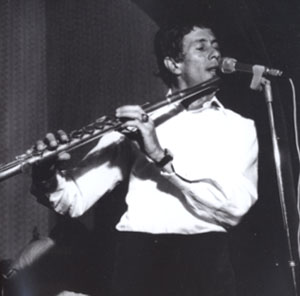 |
HAROLD McNAIR spent the first decade of his musical career in The Bahamas, where he used the name Little G for recordings and live performances. In 1960, he went to Miami to record his first album, a mixture of jazz and calypso numbers entitled Bahama Bash. It was around this time that he began playing the flute, which would eventually become his signature instrument. McNair moved
to the UK in the sixties after touring Europe with Quincy Jones. He
quickly established a reputation as a formidable flute and sax player
with a regular residencies at Ronnie Scott's nightclub. Then followed two albums for RCA, 'Harold McNair', in 1968 and 'Flute and Nut' in 1970. This was quickly followed in the same year by 'The Fence' for the B&C label. Another self-titled album was issued posthumously by the B&C label in 1972, mixing tracks from the 1968 RCA album with later, unreleased recordings. Notable recorded works as a sessionist included albums with the jazz-rock/big band ensemble Ginger Baker's Air Force and John Cameron's Off Centre. Throughout the
late 1960s he also played on many other jazz inflected folk music and
progressive rock albums, including John Martyn's 'The Tumbler' and Davy
Graham's 'Large As Life and Twice As Natural'. He also featured on the
soundtrack for Ken Loach's film Kes, with music written by John Cameron.
He contributed tenor saxophone on the original 1962 soundtrack theme
from Dr. No. He supported Donovan's mid to late 1960s recording sessions, and as a member of his touring band. Harold McNair
died from lung cancer in 1971. |
|
